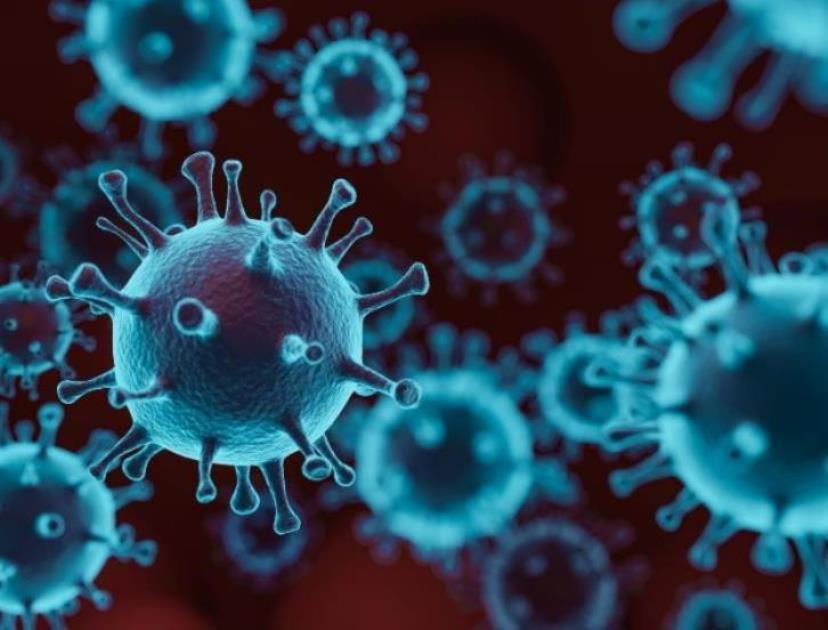Links to external sources may no longer work as intended. The content may not represent the latest thinking in this area or the Society’s current position on the topic.
Modelling the COVID-19 pandemic: achievements and lessons

Join the Royal Society, RAMP, the Isaac Newton Institute and the wider modelling community as we reflect on the scientific and policy implications of modelling work done in response to the COVID-19 pandemic, and celebrate the role of early career researchers in that response.
Submit your questions on Slido
Download the conference schedule (PDF).
Modelling played a key role in understanding the scientific evidence surrounding the COVID-19 pandemic as well as informing policy decisions. The Rapid Assistance in Modelling the Pandemic (RAMP) initiative drew on a diverse range of disciplines to support that modelling work. Through this and other initiatives, but particularly through the hard work of many early career researchers who served at the forefront of the national effort, our modelling capabilities have undergone rapid expansion, and great scientific progress has been made.
Structure of the workshop
This all-day event, held at the Royal Society, will bring together the wide community of modelling scientists involved in the COVID-19 pandemic response to celebrate their contributions. The first part of the day will consist of a series of talks by early career researchers across modelling disciplines relevant to the pandemic response, which include not only epidemic modelling but also work on air-flow, human behaviour and other topics. Early career researchers will also be invited to present at a poster session accompanied by (pre-recorded) flash-talks.
This will be followed by a policy-focused panel discussion that will explore the lessons from the pandemic for how the scientific community can respond to future emergencies.
In the evening, there will be a series of public talks from invited speakers which will provide an overview on epidemiological modelling, the factors that influence virus transmission and the path between science and policy. Details for the public talks can be found on the 'Lessons from modelling the pandemic' Royal Society page'. The evening talks will be livestreamed on the Royal Society website for those who cannot attend in person.
Contributed talks and poster session
This event will feature contributed talks, flash talks and a poster session, which will be selected by the organisers of the meeting. If you are interested in submitting a contributed talk or poster for consideration, please include an abstract (max. 400 words) with a title and list of authors submitted through the Eventbrite registration page by 20 May 2022.
Attendee information
- This is a hybrid event
- This event will take place on 13 June at the Royal Society, 6-9 Carlton House Terrace, London, SW1Y 5AG. Participants can register to attend in person or online
- The event is free to join. Advance registration is essential due to capacity restrictions
- Subtitles will be available on the recordings
- If after registering you are not able to attend, please cancel your ticket as soon as possible so others can attend
Submission information
- At registration, ECRs will be invited to submit a poster, pre-recorded flash talk and/or full oral presentation abstract (max. 400 words)
- The poster session is in-person only. ECRs attending online can nonetheless submit an abstract for a flash-talk and/or full oral presentation
- Abstracts should be submitted by 20 May 2022. We will respond with acceptance decisions by 27 May
- We are flexible about the definition of ECRs but roughly speaking this means people who did not have a permanent academic or equivalent post before the pandemic began
For enquiries, contact the workshop team. Email: alexandra.wakefield@royalsociety.org and mahi.hardalupas@royalsociety.org.
This event is funded through a grant to RAMP from UKRI, grant number EP/V053507/1.
Event programme (updated 8 June 2022)
Download the conference schedule (PDF).
Daytime session
| 9.30-10.10 | Registration and refreshments |
| 10.10 - 10.20 | Welcome remarks by Professor Peter Bruce FRS and Professor Mike Cates FRS |
| 10.30 - 12.35 |
Session 1 - ECR Showcase |
| 12.35 - 13.15 | Lunch |
| 13.15 - 14.45 | Session 2 - ECR Showcase Chair: Dr Robin Thompson (University of Warwick) |
| 14.45 - 15.15 | Session 3 - ECR Flash talks |
| 15.15 - 15.45 | Refreshments |
| 15.45 - 17.30 |
Session 4 - Policy focus session: How the scientific community responds to emergencies -- lessons from the pandemic 5 minute presentations followed by discussion with panelists: |
| 17.30 - 19.00 | Poster exhibition with finger buffet and refreshments |
Evening session
| 19.30 - 21.00 |
Lessons for modelling the pandemic 30-minute talks: |
| 21.00 - 21.30 | Panel discussion |
| 21.30 | End |
